CRIMINAL JUSTICE, BEHAVIOR, AND LAW
PROGRAMS FOR PRE-LAW AND THERE’S NO PLACE LIKE SAINT ROSE.
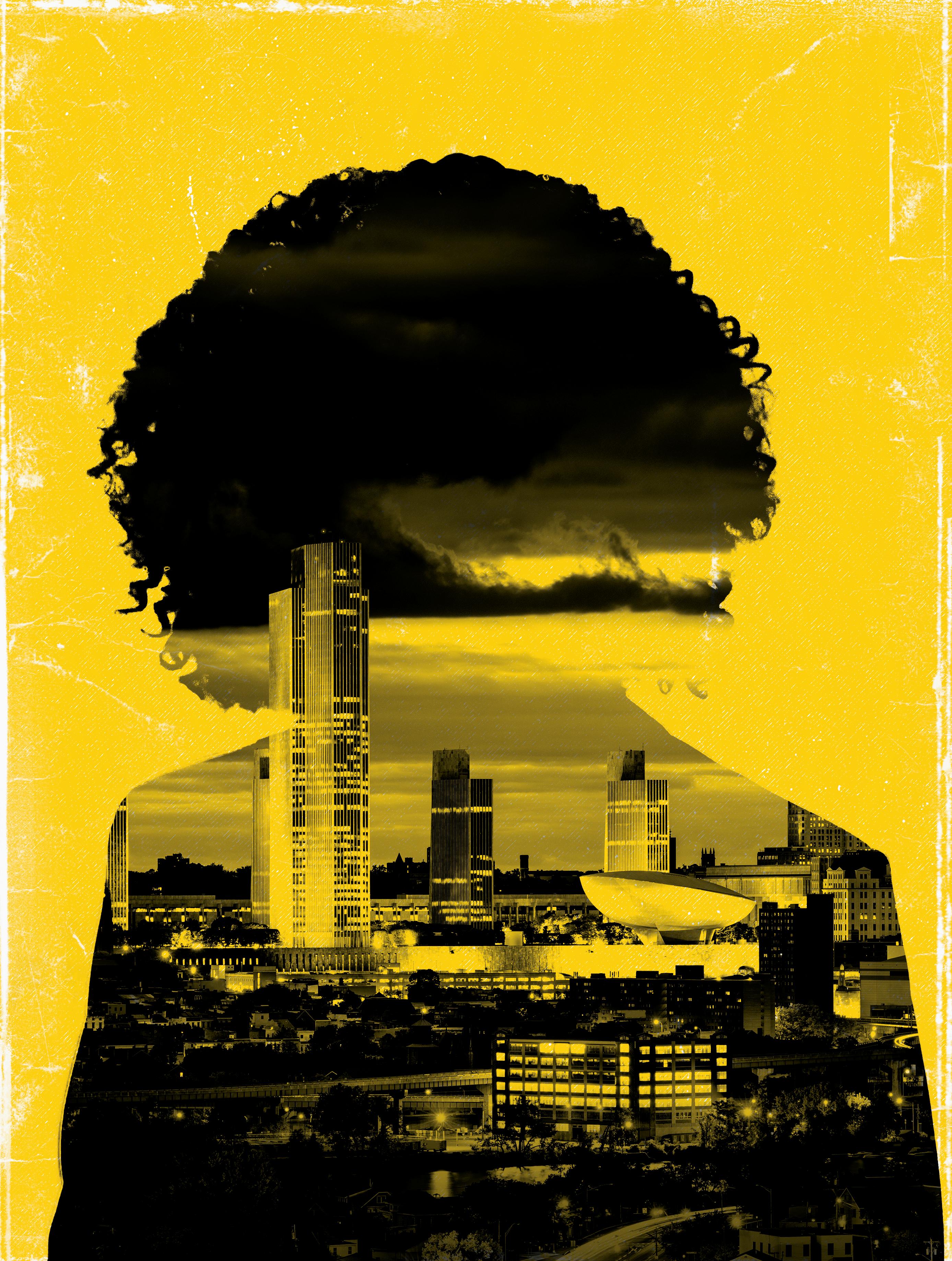



OUR CRIMINAL JUSTICE SYSTEM IS COMPLICATED, and at Saint Rose, we understand there is a lot more to it than cops, courts, and corrections working together to capture, convict, and punish people who violate the law. That’s why we built an expansive criminal justice, behavior, and law program that will provide you with a well-rounded education and prepare you for a variety of careers.
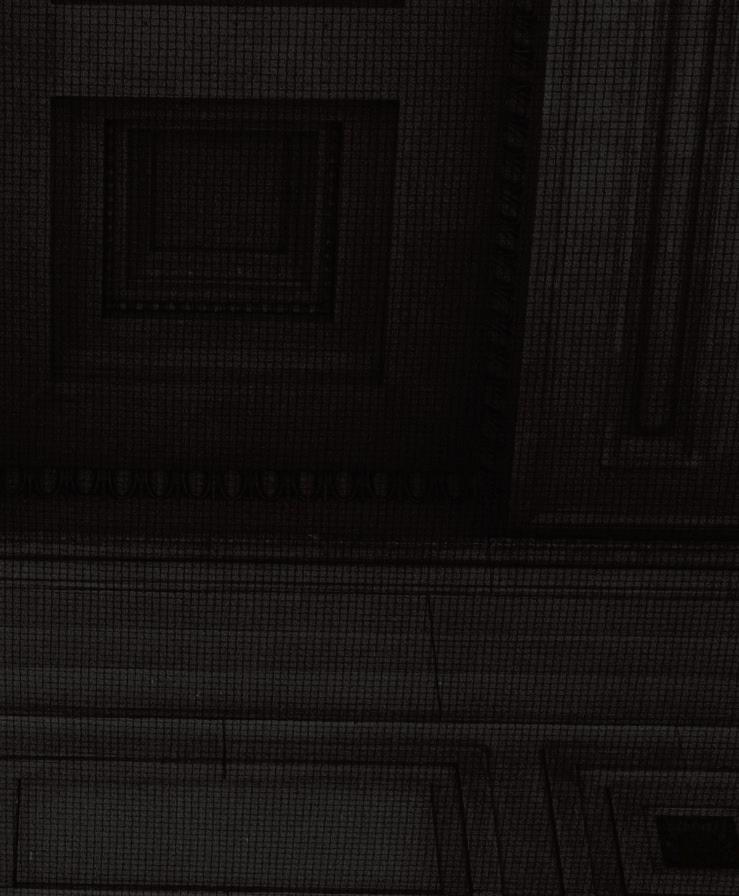

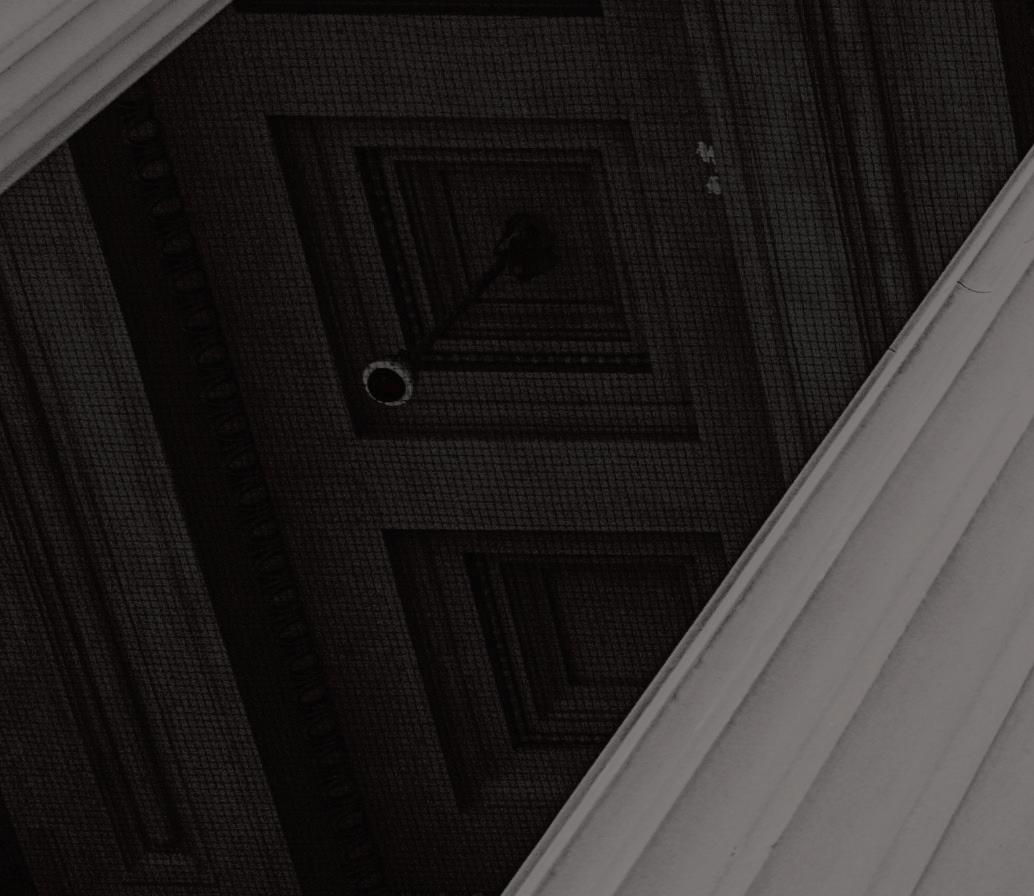
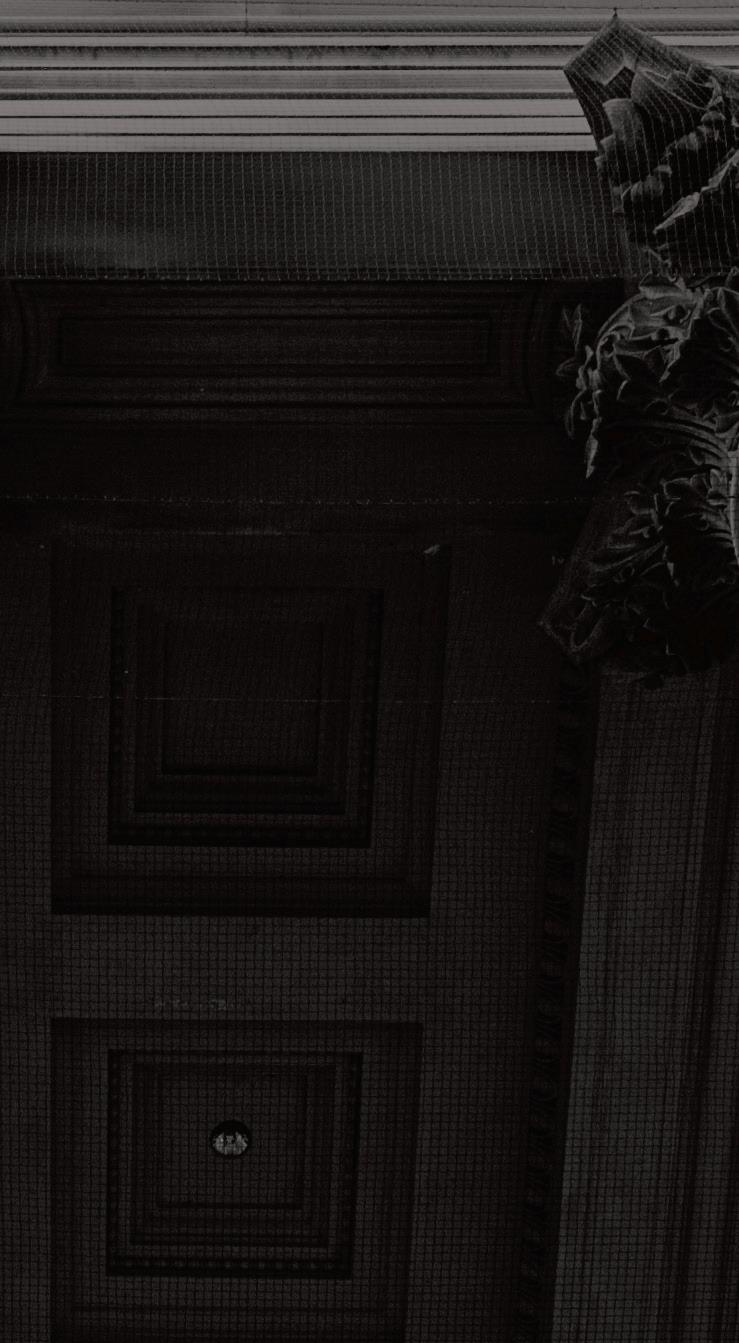

And, if you are already thinking about receiving your Juris Doctor (JD), you can get on the fast track with our pre-law program and competitive mock trial team.

I hope to see you in one of our classrooms soon.
Dr. Robert W. Flint Jr. Chair of the departments of Psychology and Criminal Justice, Behavior, and Law Flintr@strose.edu
Expert faculty who have experience in their fields, internship opportunities with local law enforcement agencies, the opportunity to participate in our National Collegiate Mock Trial Team or Cold Case Analysis Center, and a dedicated advisor for pre-law students: When it comes to your education, Saint Rose does not miss.
Find out what it takes to study the law, practice the law, and someday become a practitioner of the law in the world.

criminal justice program offers so many interesting courses and subjects. In my first year, I did not know exactly what career I wanted to pursue. However, after taking various classes from law and psychology to sociology and more, and having open and intellectual conversations with my professors, I was able to figure out what I wanted. I have grown to love detective work, working to find justice for those who need it. Additionally, the Cold Case Analysis Center is such a great experience to learn from and prepare for working in the criminal justice world.”

Criminal justice, behavior, and law major with a concentration in criminal behavior and criminology, Cold Case Analysis Center intern
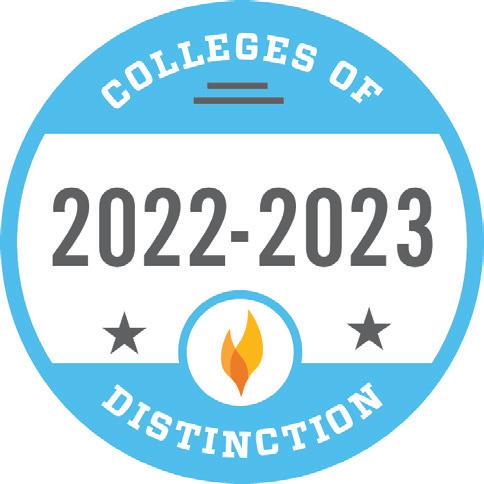
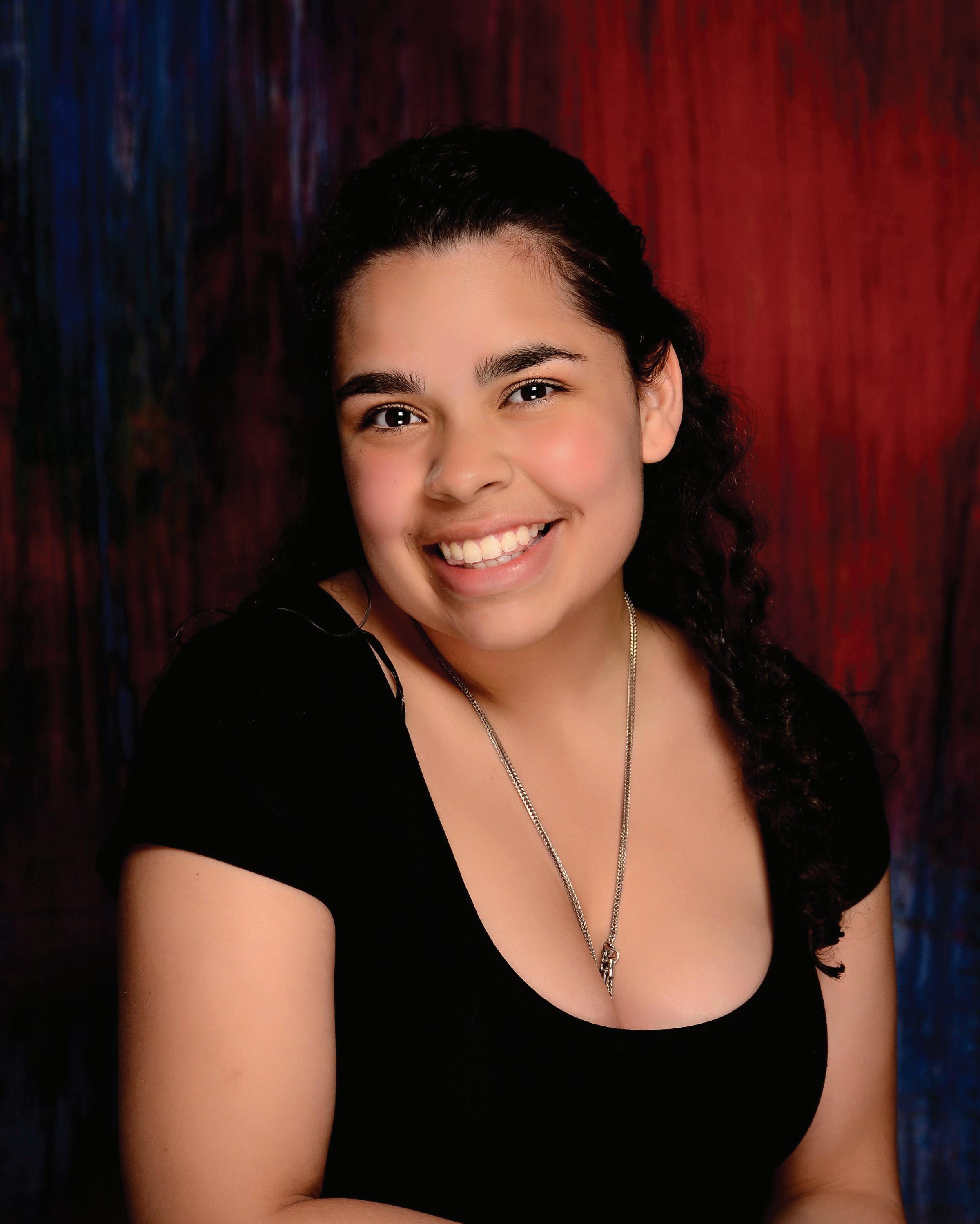
Take a deep dive into our programs in pre-law and in criminal justice, behavior, and law
“TheNational Mock Trial Association Team and Honorable Loretta A. Preska Mock Trial Courtroom
LOCATION: Saint Rose’s location in the heart of the state capital lends itself to ample internship opportunities at employers like the New York State Assembly, local law enforcement agencies, nonprofits, and the FBI.
CAMPUS: You don’t have to leave campus to gain hands-on experience. Our Cold Case Analysis Center allows qualified students to work on real cases with local law enforcement agencies. Interested in the courtroom? Our mock trial courtroom and teams provide training for the rigors of law school and beyond.
RESEARCH: Want to dig deeper into an interesting topic or theme? Saint Rose encourages undergraduates to participate in research, leading to greater exposure among peers and professionals.

VARIETY: We offer some pretty cool courses, including: Policing in a Free Society; Criminal Profiling; Juvenile Justice; Prosecuting Crime; Sex Crimes and Paraphilia; Serial Crime; Scientific and Expert Opinion Evidence; and Drugs, Crime, and Criminal Justice — to name a few.
EXPERIENCE: You might opt for the Law Abroad program, which most recently took students to London, England. You could also participate in the “Jack the Ripper” study-abroad program, and delve into this case in detail in the context of Victorian England.
ACADEMICS: We take an interdisciplinary approach to our program, so you understand the biology, economics, political science, philosophy, history, psychology, and sociology behind why people commit crimes and how society responds.

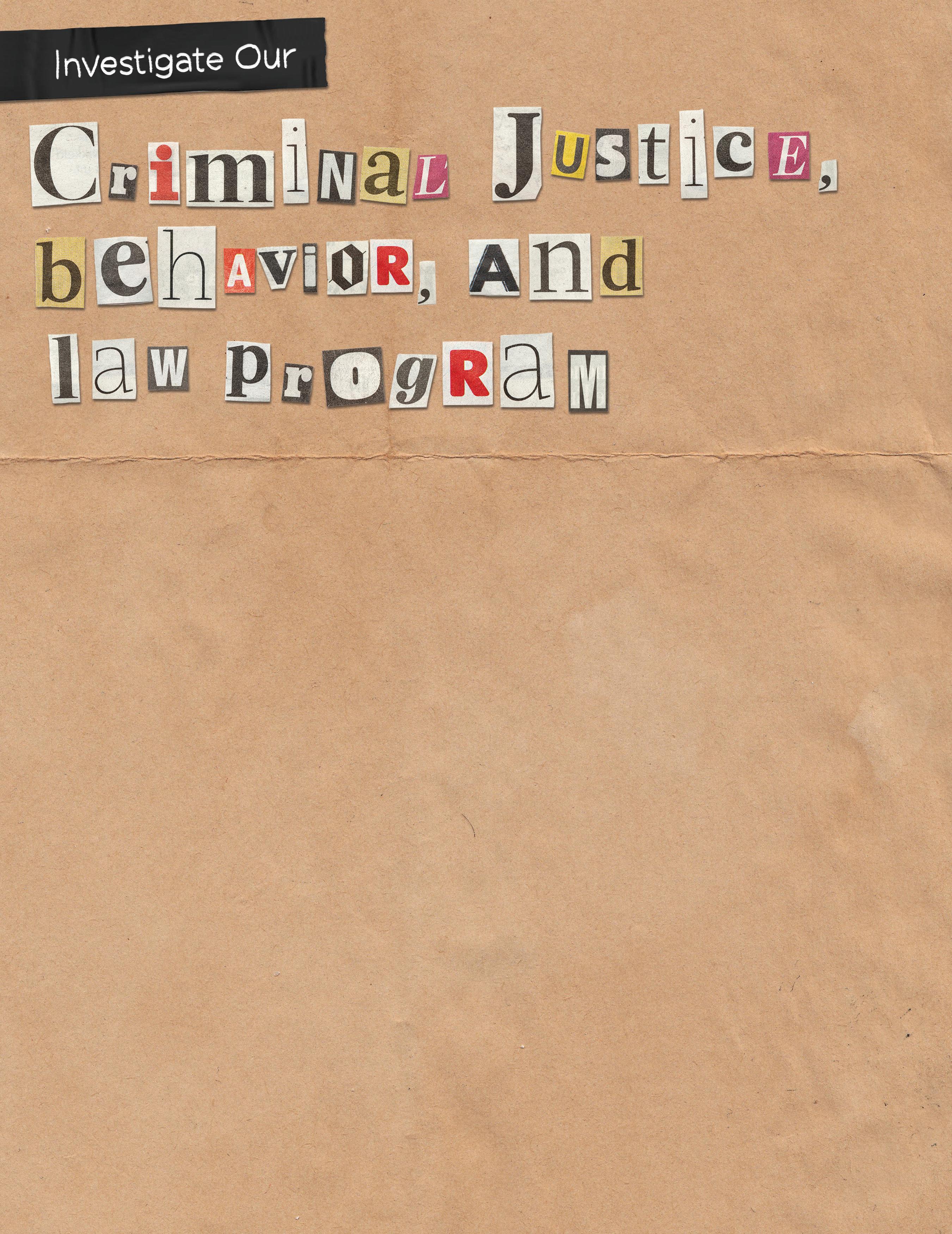
“I incorporate issues in law enforcement, such as technology advancements, training, shifting/changing societal norms, and crime trends. We also discuss the detrimental impacts from those in law enforcement who violate rights, cut corners, and become jaded over time, and how it adversely affects the criminal justice system and creates distrust between communities and law enforcement. With this topic, I refer to my experience as an internal affairs captain and the role I played in weeding out those who should not have been a member of the law enforcement profession.”
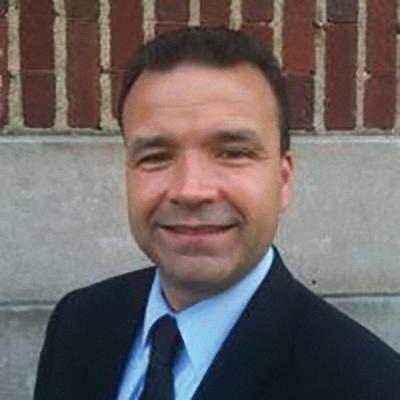
JOIN ONE OF THESE STUDENT

CRIMagnify (our criminal justice club), Alpha Phi Sigma (criminal justice honor society), and/or Phi Alpha Delta (prelaw organization and honor society).
FIND YOUR FOCUS!
You can narrow your studies by choosing a concentration in Law and Justice, Law Enforcement and Homeland Security, Criminal Behavior, or Victim Advocacy. Students who want to prepare for graduate school and/or post-graduate work involving research can qualify for the William J. Hagan Research Honors Concentration, which involves a major research project not unlike what is commonly done for a master’s thesis.
Your studies will culminate with a senior seminar course, preparing you for grad school and continued research in your field.
You will complete a career preparation course (CJS 399) that provides career education and training in fields related to criminal justice.


Since the nation’s law schools do not recommend any particular major as the single best preparation for law school, you can major in any of the following outstanding programs while receiving dual advisement from expert faculty members and from our pre-law advisor:
• Communications
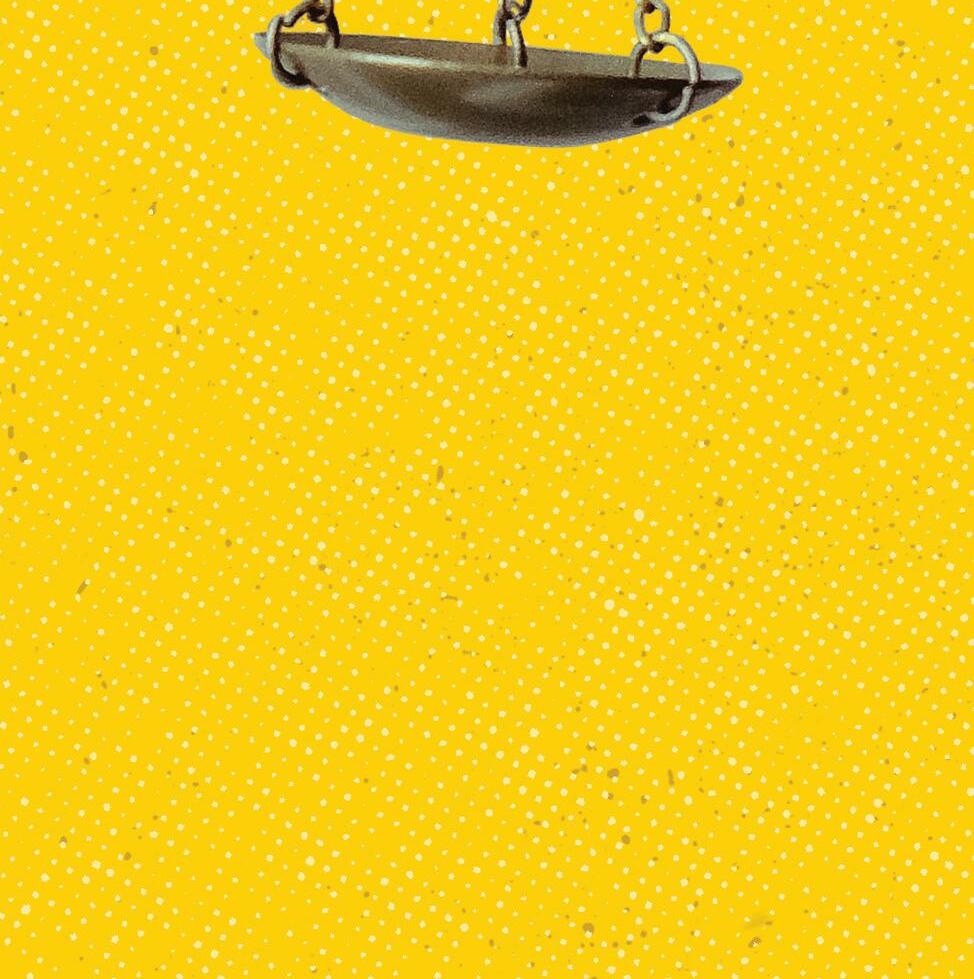

• Criminal justice, behavior, and law
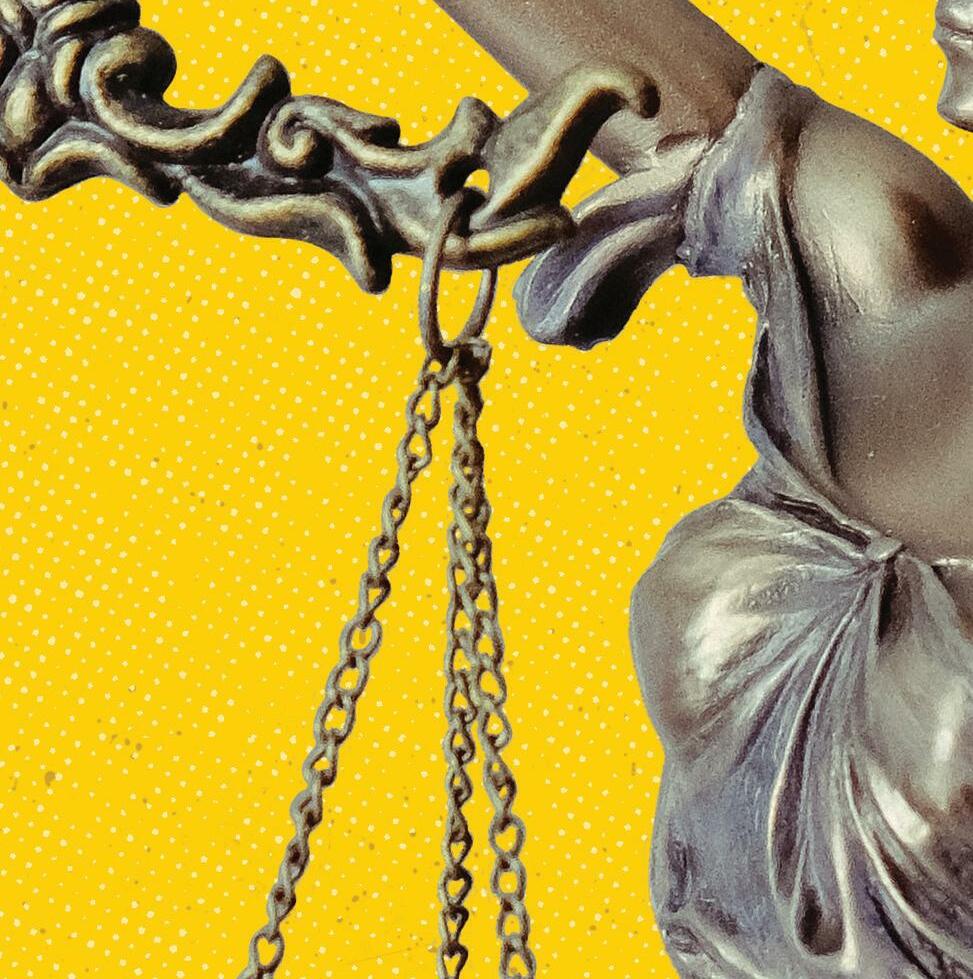
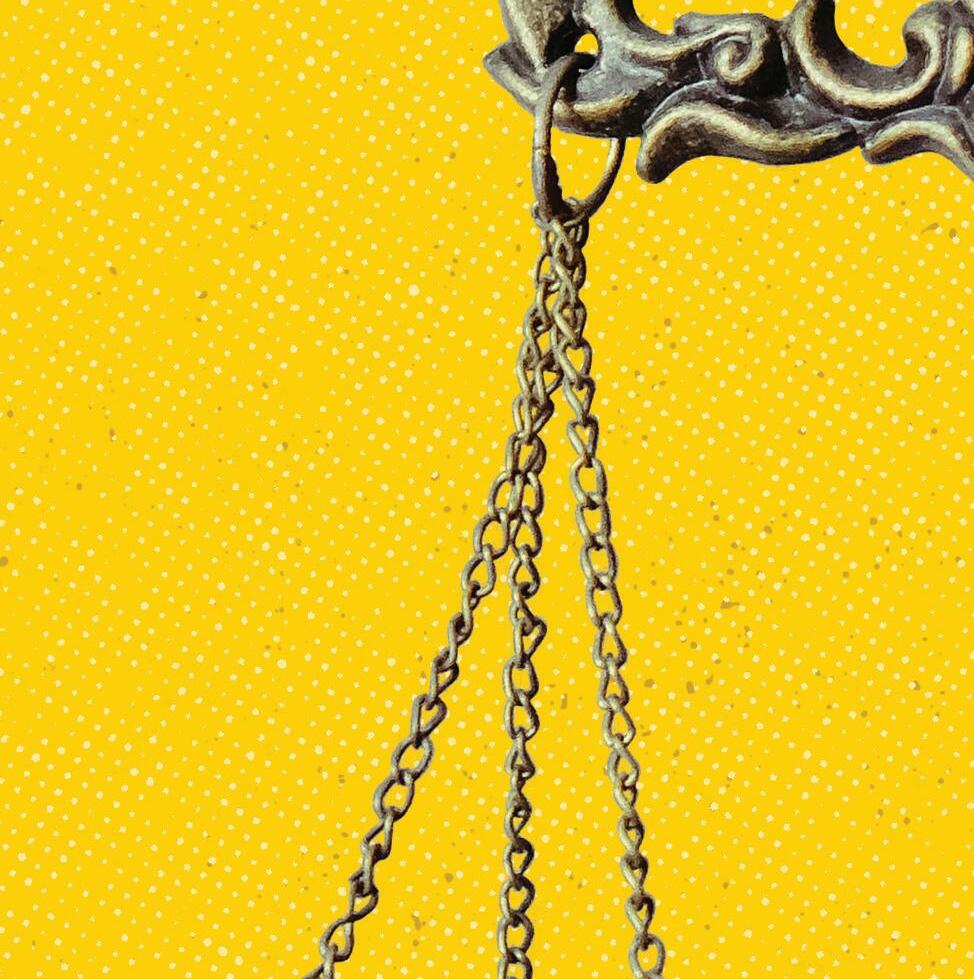
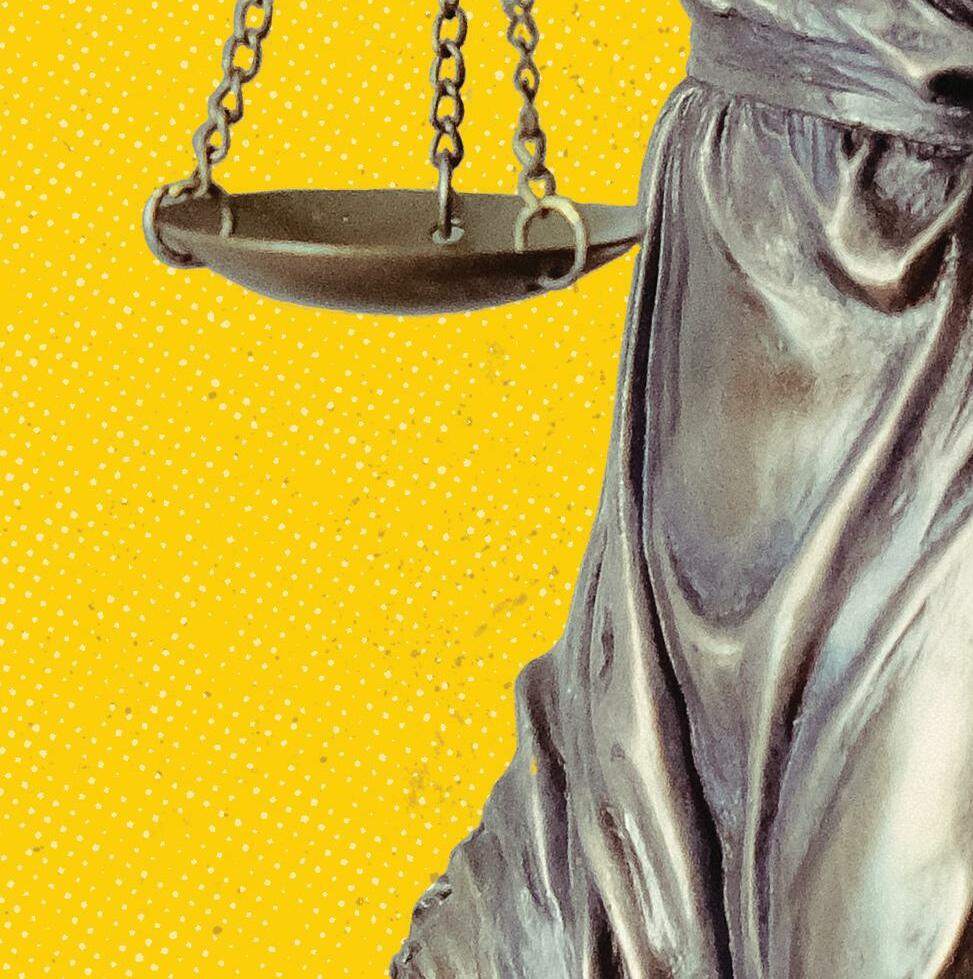
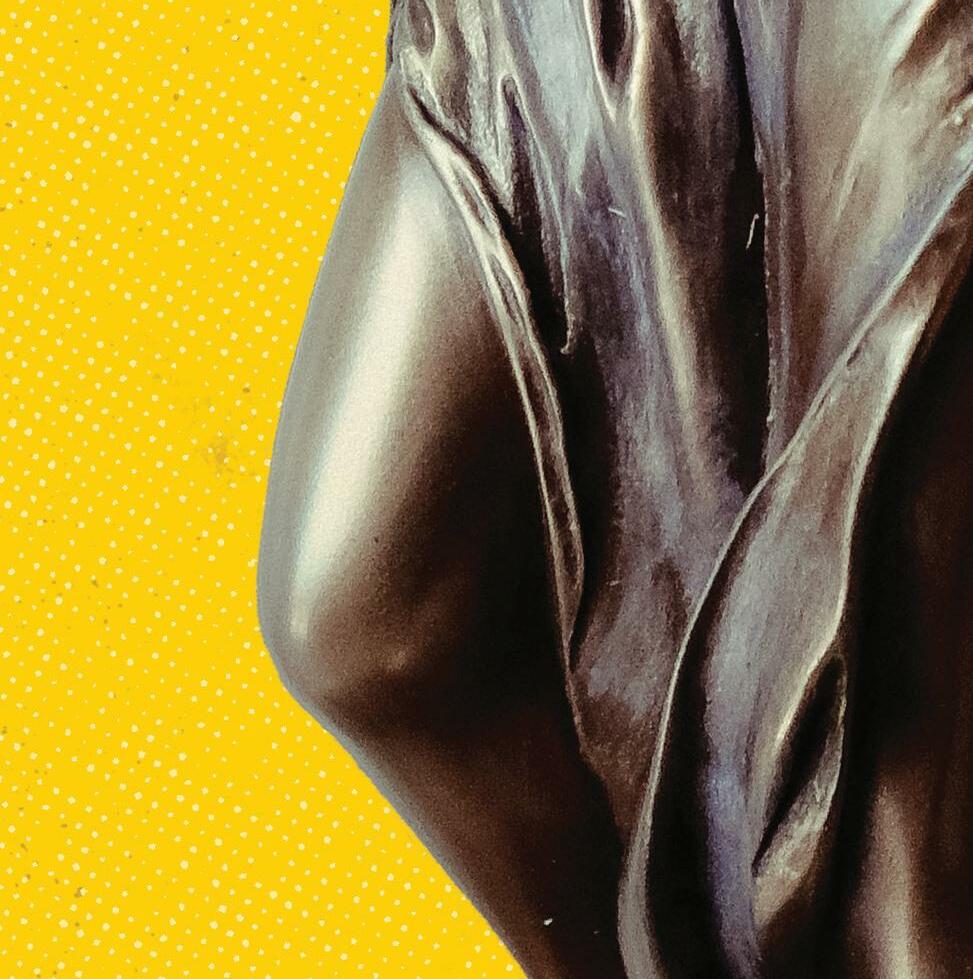
• English
• History and political science
• Interdisciplinary studies
• Psychology
Meet other pre-law students by participating in a pre-law colloquium, joining our mock trial teams, and becoming a member of Phi Alpha Delta pre-law organization and honor society. All of these opportunities prepare you for law school and exciting career opportunities.
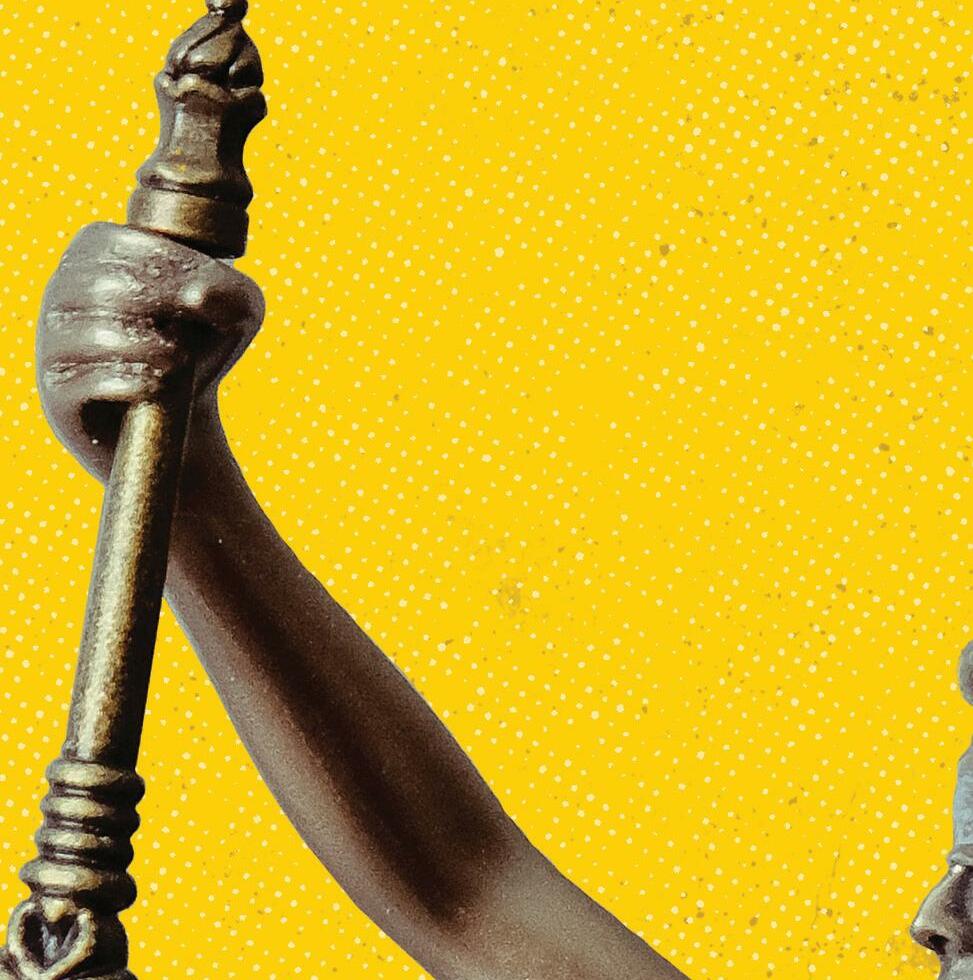
Looking to get a jump-start on your JD? We offer a 3+3 law program in partnership with three law schools — Albany Law School, Pace University School of Law, and Western New England School of Law — allowing you to complete your degree in six years instead of the usual seven.
THE HONORABLE LORETTA PRESKA ’70 is the College’s Jurist-in-Residence, providing a unique mentorship opportunity for pre-law students. Here are five things to know about her:
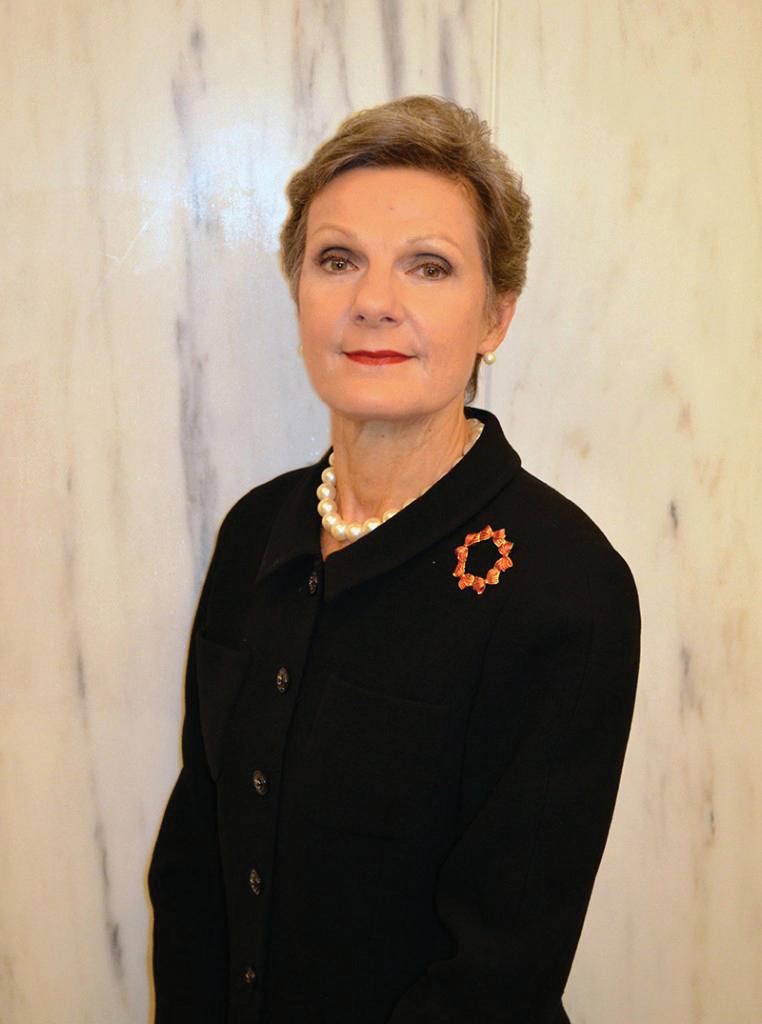
• The high-ranking United States federal judge earned a BA in Chemistry from Saint Rose, an LLM from New York University School of Law, and a JD from Fordham University School of Law.
• Preska was appointed to a seat on the United States District Court for the Southern District of New York by President George H. W. Bush in 1992 and served as its Chief Judge from 2009 to 2016.
• She sentenced Abduwali Abdukhadir Muse to 33 years in prison after he pleaded guilty to hijacking an American cargo ship and kidnapping its captain (the plot for the movie “Captain Phillips”).
• The Saint Rose Mock Trial Teams can practice in their own Mock Trial courtroom thanks to the generous donations of Preska and her husband Thomas J. Kavaler, Esq.
• Preska presided over a hearing involving Ghislaine Maxwell, the accused “procurer” for the late convicted sex offender Jeffrey Epstein.
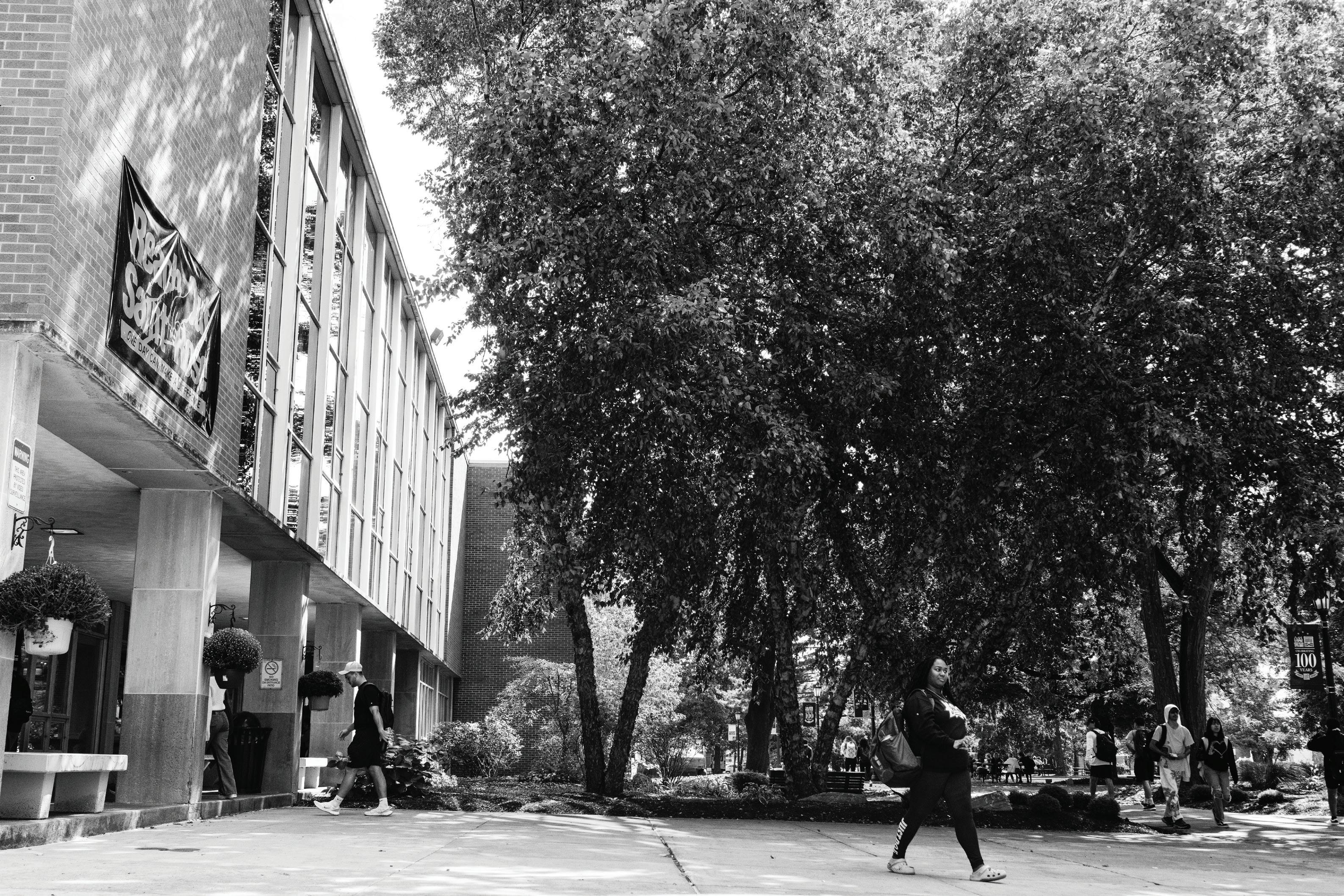
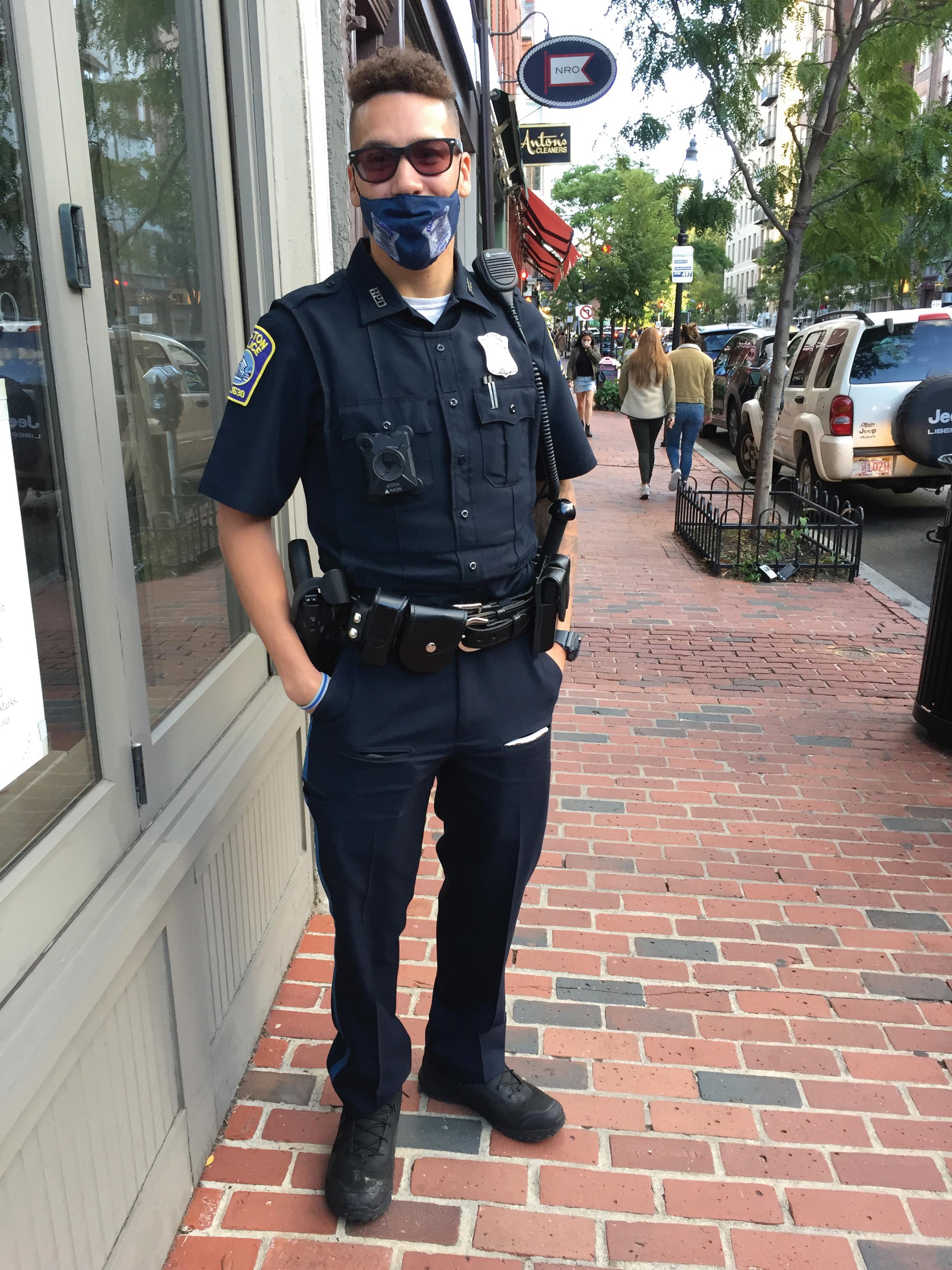
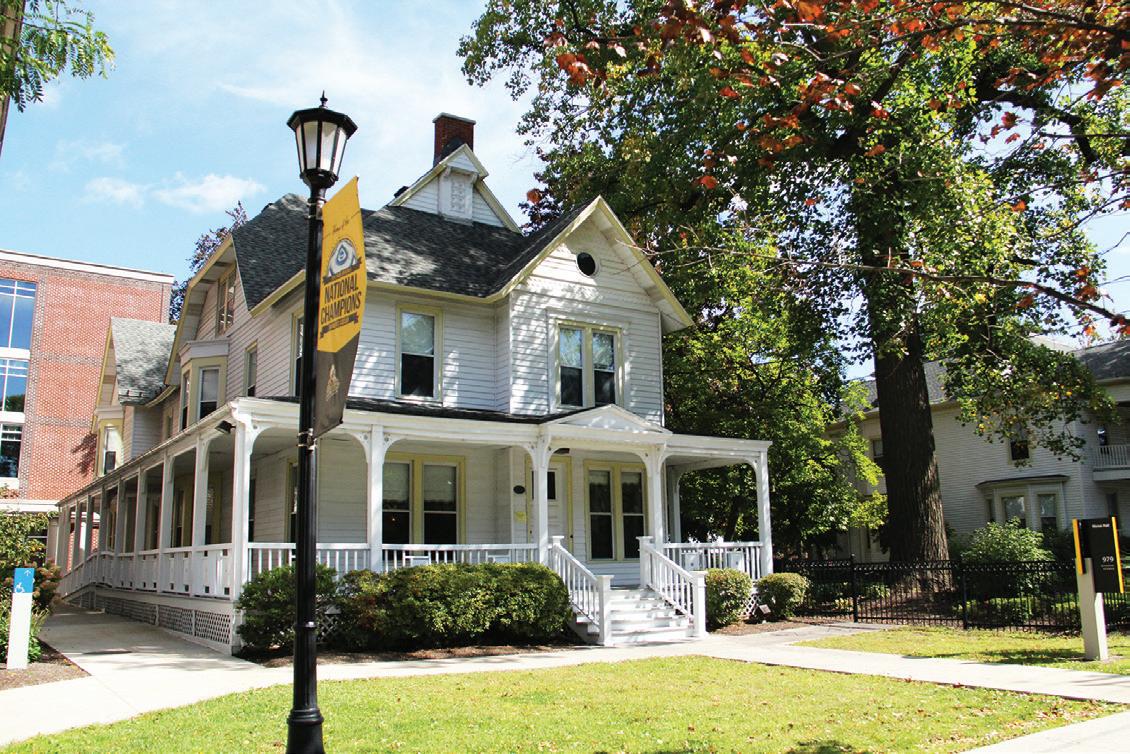
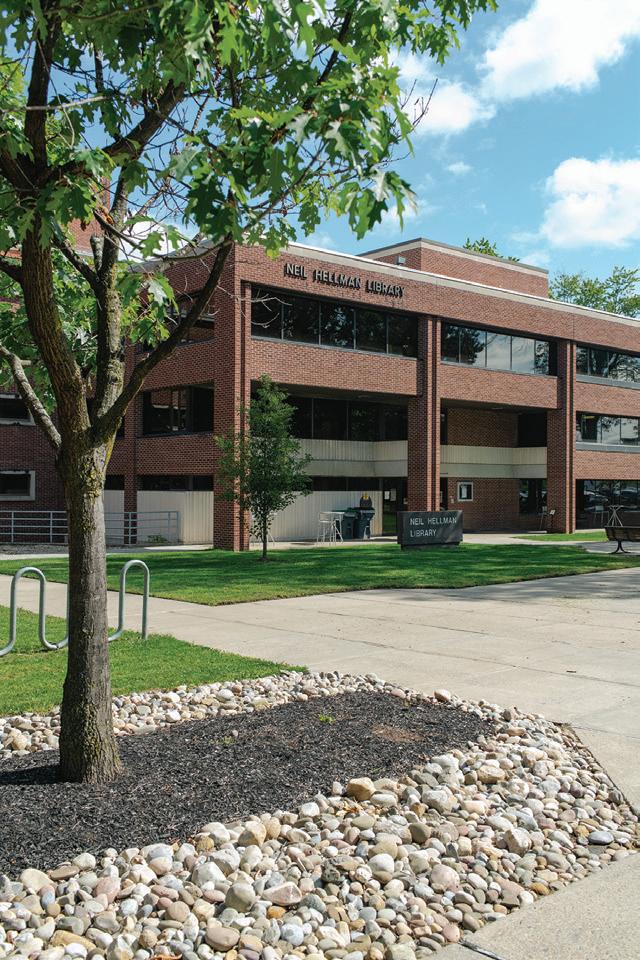
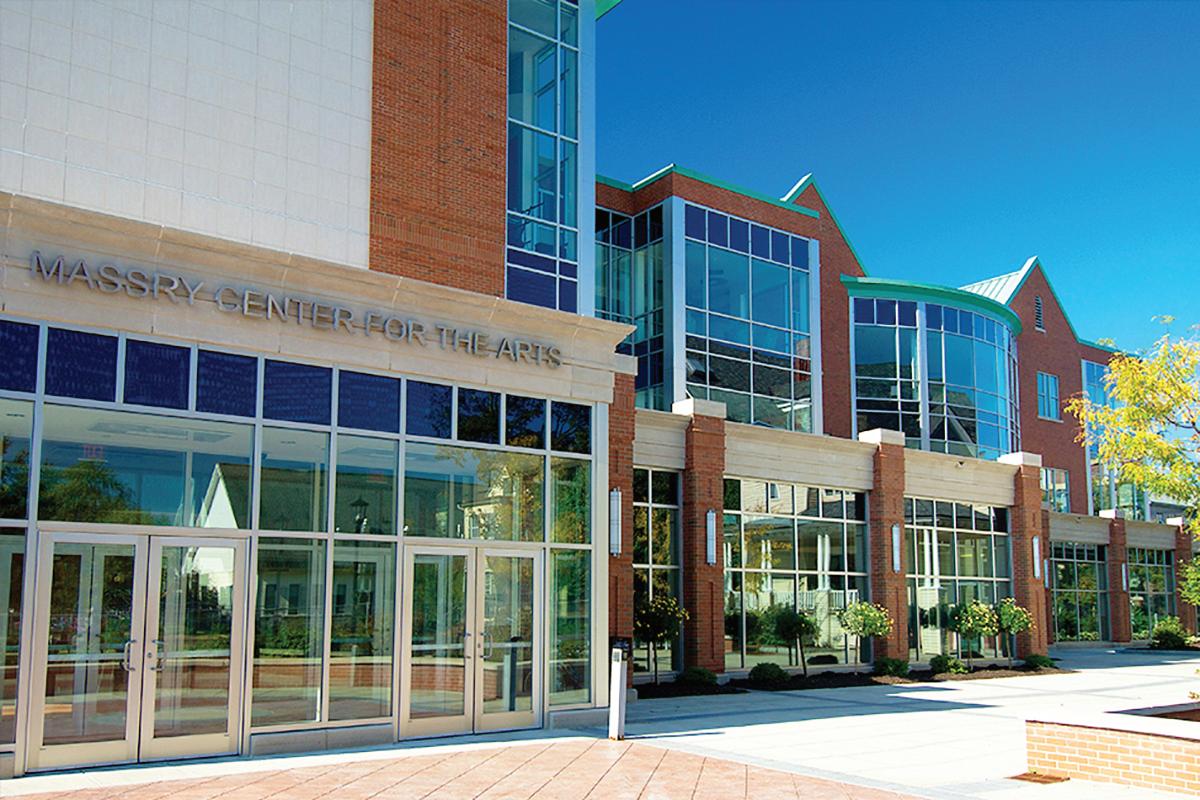
time at Saint Rose as a criminal justice student was a tremendous one. The dedicated faculty really do a terrific job at showing all avenues the department has to offer and the many different career fields that a criminal justice major can bring. My time at Saint Rose has definitely helped me in my current career, working as a Boston Police Officer.”
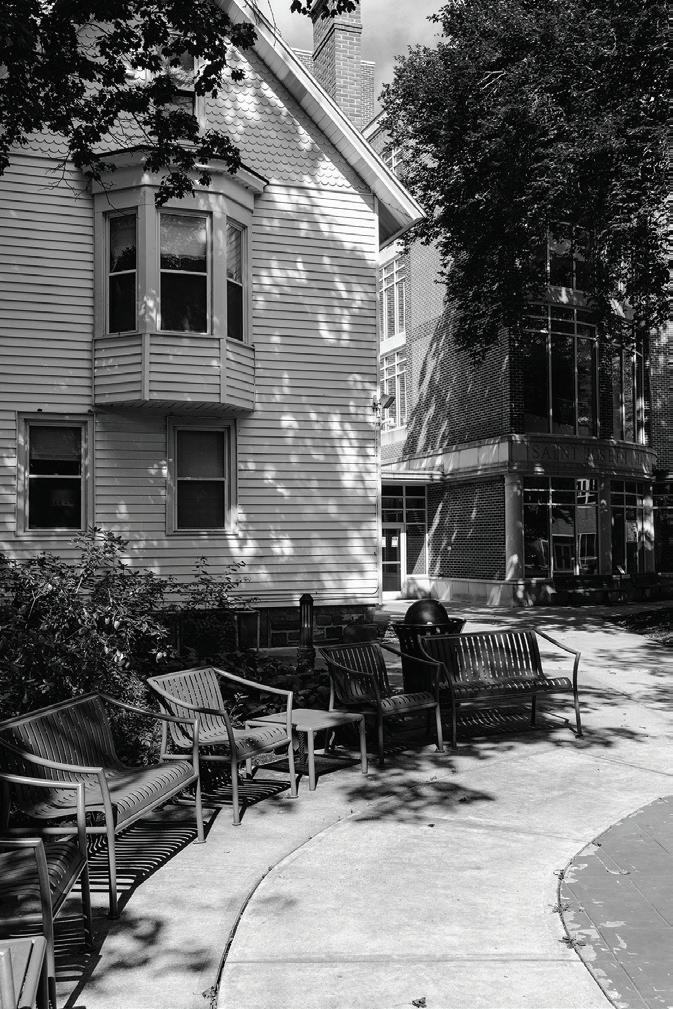
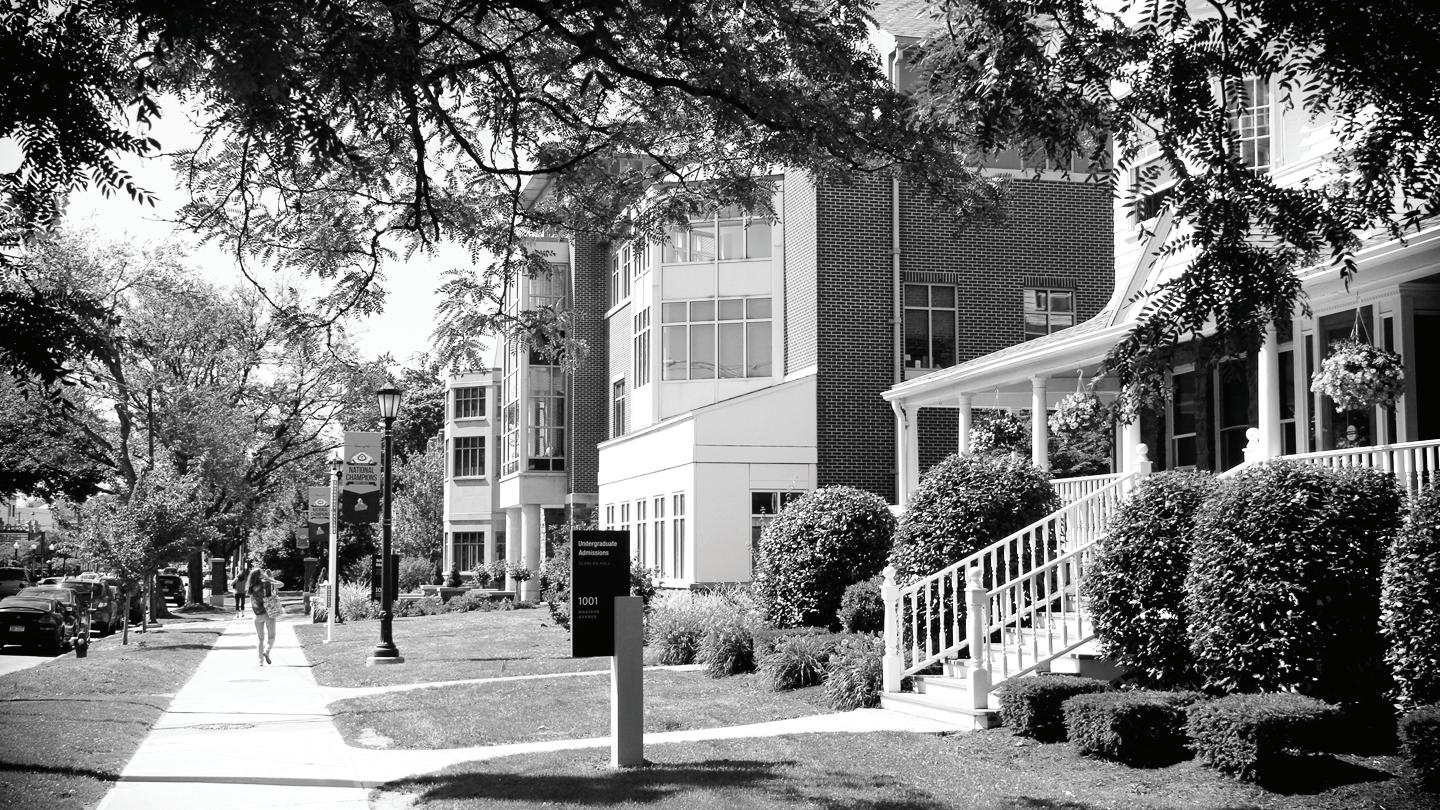 GRADY ’19
GRADY ’19
“MyLIAM Police officer, Boston Police Department, Boston, Massachusetts
“My Saint Rose experience gave me the confidence and ability to succeed in law school and as a lawyer. I learned case law and developed critical thinking skills and participated in the Mock Trial team — which made me comfortable with public speaking and thinking quickly on my feet, gave me a taste of what it’s like to be a lawyer, and has continued to open doors for me in the law community.”
LAUREN MODZELEWSKI ’15
Attorney, McAngus Goudelock & Courie, Columbia, South Carolina
“Once I got to Saint Rose, I had a different attitude. I wanted to own what I did and share what I learned in the military. When I got accepted into the FBI, everything paid off. I got my master’s and my dream job.”
VINCE SOLDANI ’14, G’16
Accounting analyst, Criminal Justice Information Services, Federal Bureau of Investigation, Clarksburg, West Virginia
“At Saint Rose, I gained excellent communication skills, which helps me present my case in court to the district attorneys. I also learned to talk to people with compassion, which really helps in my work now.”

BRIAN XAVIER WILLIS ’15
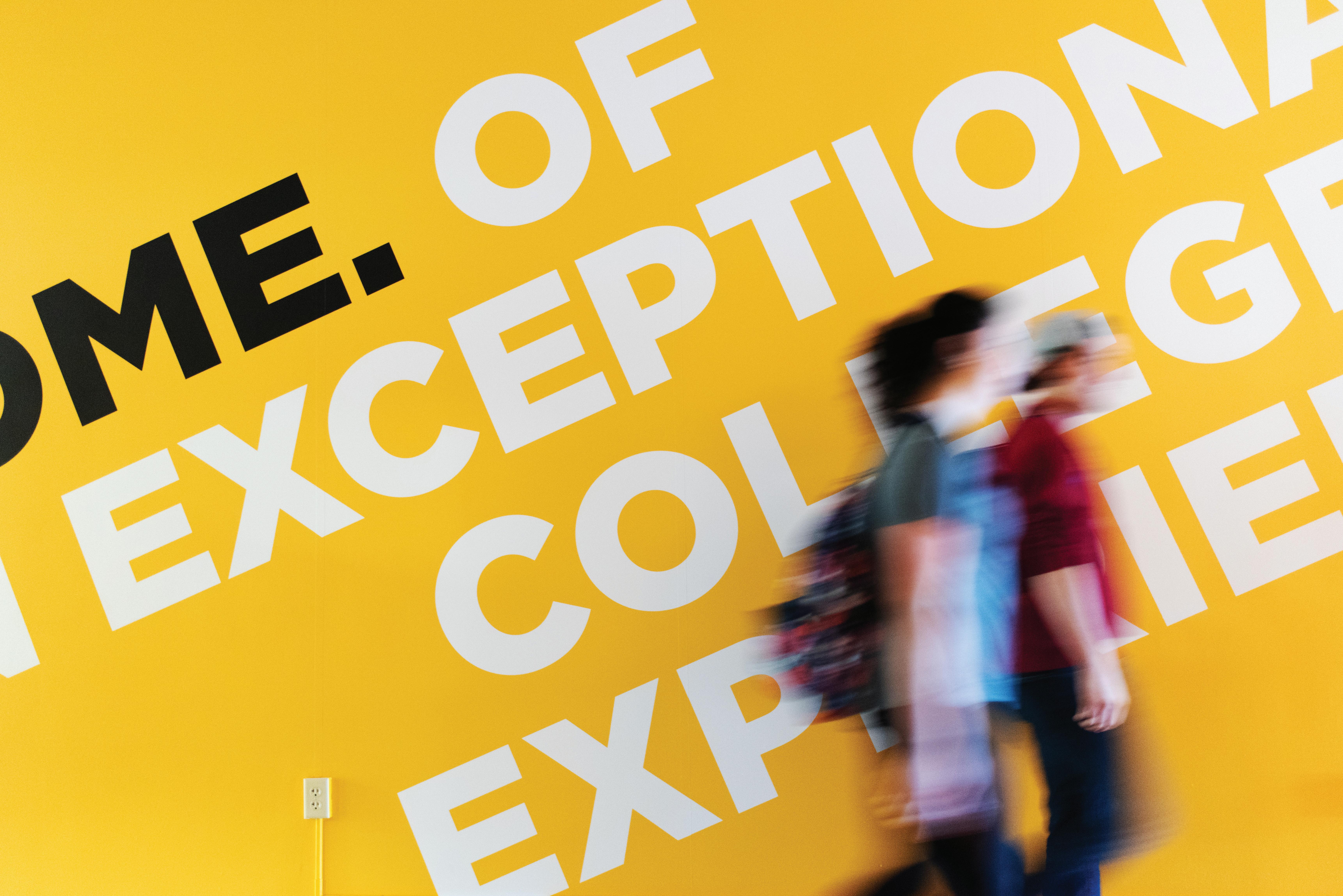
Police officer, Brookhaven Police Department, Brookhaven, Georgia

“My experience on the Saint Rose Mock Trial Team helped me immensely in law school and in my career. It has helped me shape who I am.”
MARIA HENAIN ’18
Associate attorney, King & Spalding LLP, Atlanta, Georgia
The College of Saint Rose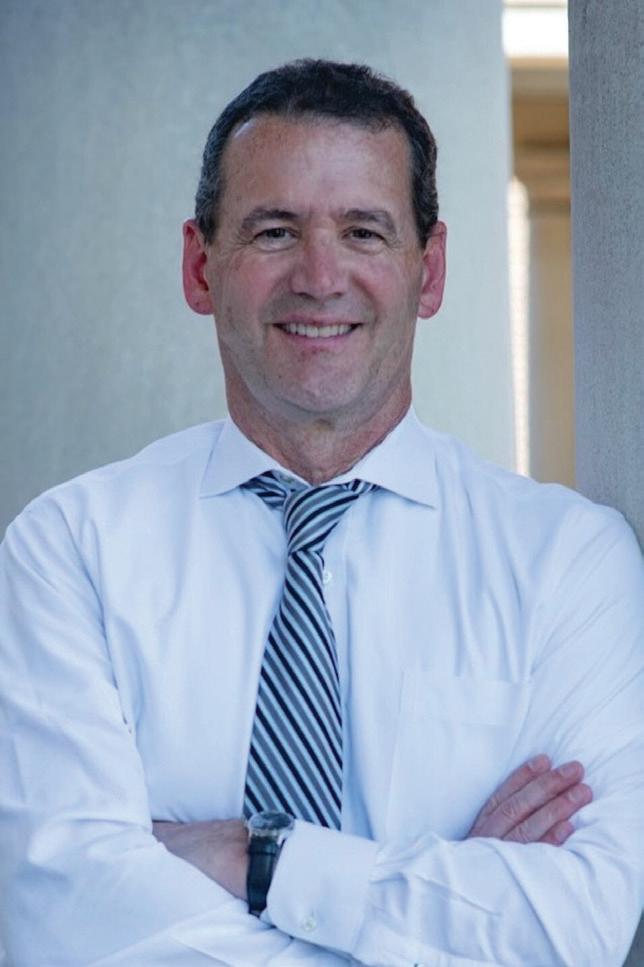
Joined Saint Rose faculty: 2022
Experience: Attorney, former law enforcement executive, and a retired military o cer.
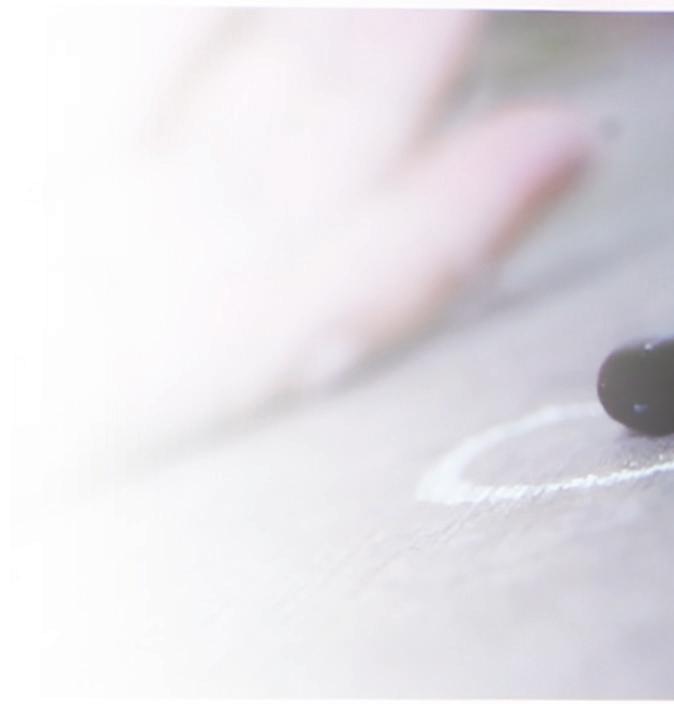
Teaches: Human Tra cking; Homeland Security; Evidence, Experts, and Courts; and Criminal Law and Procedure, plus hands-on instruction with the College’s popular mock trial program.
Research Specialty: Use of arti cial intelligence to prevent suicide in prisons, ethical policing in South American, Caribbean and West African “cocaine pipeline” countries, and prison escapes.
Why he loves working with students: “I have served in various roles throughout the U.S. and internationally, but my favorite thing to do is to teach and guide undergraduate students. I hope to help students with their career choices and internships through contacts in the law enforcement and legal communities. My teaching goals are to provide interesting and relevant information to students every day and in every class and to help students learn from each other, think on their own, solve challenging issues, and break complex matters down into manageable steps.”

The only center of its kind in New York State and one of six nationally, our Cold Case Analysis Center (CCAC) allows selected students from our degree programs in criminal justice, behavior, and law; forensic science; and forensic psychology to work on true cold cases, addressing a mounting problem in the criminal justice system. All of this is done under the guidance of our expert faculty and in partnership with local law enforcement agencies.
The National Missing and Unidenti ed Person System estimates that an average of 2,000 missing person cases go unsolved each year.

You’ll receive training and experience in unsolved case analysis while forming relationships with community agencies and contributing resources to local and state law enforcement to address their cold case initiatives (imagine putting THAT on your resume). And you’ll gain access to the same files that law enforcement agencies have access to. You’ll receive an education — outside of the classroom — in forensic science, the law, and criminal investigation techniques. Additionally, you will learn investigation skills and become better acquainted with the cold case problem and its challenges to professionals. You’ll work on cold cases with roots in the Capital Region, and see the human side of the cold case problem by working with local nonprofit agencies on fundraisers related to the problem.

Dr. Christina Lane Director, Cold Case Analysis Center
“I’ve worked with the Cold Case Analysis Center for a little more than half a year now, and I’ve learned so much from this experience. It’s very eye-opening, working on actual cold cases, but it does feel nice to be able to try to bring some closure to families still wondering what happened to their loved ones. It’s also been very fun working with such like-minded students, working together with the same goal!”
MATTHEW RAUPACH ’21
Forensic psychology major, intern at CCAC
Lanec@strose.edu 518.485.3767
Dr. Christopher Kunkle Advisor, Cold Case Analysis Center kunklec@strose.edu
Our location in New York State’s capital is a playground for students who want to explore careers in government, law enforcement, nonprofit work, and more.

• Albany County Sheriff’s Department
• Albany Police Department
• Albany Department of Probation
• Albany County Crime Victim and Sexual Violence Center
• Citizen’s Police Academy
• Lasalle School
• New York State Assembly
• New York State Department of Corrections and Community Supervision
• New York State Division of Criminal Justice
• New York State Office of Forensic Services
• New York State Office of the Inspector General
• New York State Office of Mental Health
• New York State Troopers
• Office of Court Administration
• St. Anne Institute
• U.S. Department of Homeland Security
• U.S. Secret Service
The Saint Rose Mock Trial Team prepares for The American Mock Trial Association’s (AMTA) Regional and National Tournaments by learning the intricacies of the case assigned, studying court procedures and the rules of evidence, and looking and acting the part of whomever they might play in the mock trials. The program is open to students of all majors and encouraged for those planning to obtain a Juris Doctor degree.
– AL CHAPLEAU, Saint Rose associate professor of criminal justice, behavior,
The teams practice in the College’s Mock Trial courtroom named after the Honorable Loretta A. Preska ’70, United States District Court Judge, an alum of Saint Rose, and benefactor of the team. The courtroom was designed to simulate a real-life courtroom — equipped with everything but a jury.
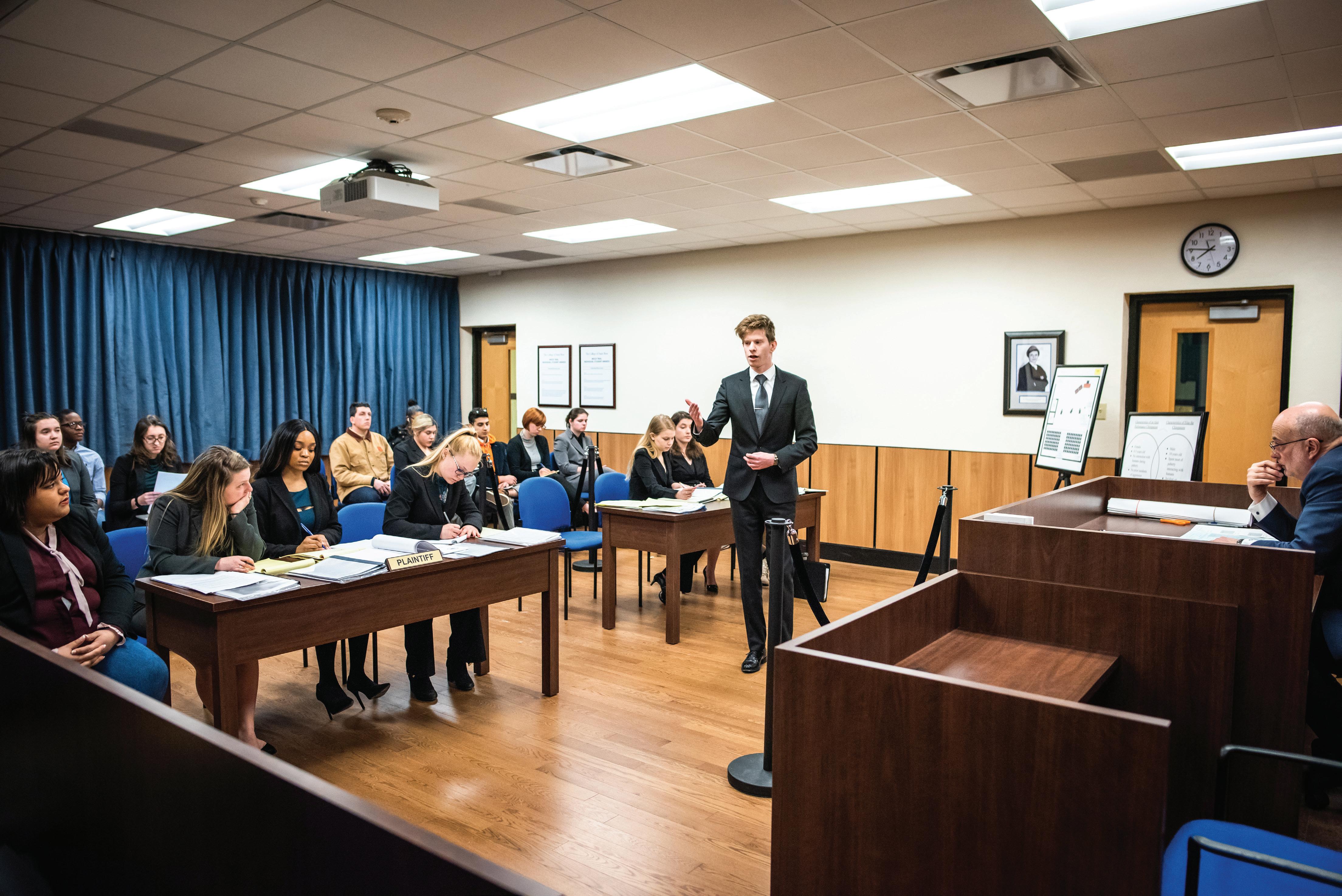
Mock Trial prepares students for beyond graduation, including the rigors of law school if that’s the path they choose. Regardless of their chosen field, the confidence and presentation skills gained through mock trial stay with our graduates for life. In addition to practicing law, students graduating from the program go on to varying professions, such as mental health counseling, engineering, and chemistry.
“All of our captains, from all of our teams, have gone on to law school.”
and law

Before becoming a criminal justice professor, what was your experience in the field?
I have a variety of experience with interning in an acute and chronic mental illness ward, juvenile detention centers, and NYS Youth Justice Program, and working for Alberta Health Canada, focusing on resilience/adversity. Despite these experiences, my true interest was teaching and inspiring students to learn. There is nothing more rewarding than having students believe in themselves. What makes our criminal justice program stand out from others?
The field of criminal justice is a multidisciplinary profession. People from many professions come together to work on the response to crime and its victims. Not only does our program present the opportunity to study responses to crime, but we also examine criminal/deviant behavior and why people abstain from crime. Using a multidisciplinary approach, students realize that crime is not just an enforcement problem.
The best way for a student to learn and retain information is to apply concepts to real-life events. Since criminal justice is always at the forefront of the media and a great concern to the public, we provide ways for students to understand the world around them. We also encourage internships so that students learn firsthand what certain careers entail.
How does the Cold Case Analysis Center contribute to a student’s education? How does it contribute to the broader community?
The Uniform Crime Report estimates that our nation currently has 250,000 unsolved murders, a number that increases by about 6,000 each year. Unsolved cases mean mounting caseloads, which drain resources and result in higher costs for agencies with limited budgets. As the number of unsolved cases mount, they tend to take a back seat to new cases that may have a higher likelihood of being solved; meanwhile, task forces and investigators come and go. In response to this problem, some agencies have formed their own cold case units, however, not all agencies have the resources to do this.
Addressing this mounting problem in the criminal justice system, Saint Rose developed the Cold Case Analysis Center (CCAC). The CCAC provides training and experience to students in unsolved case investigation and analysis while forming relationships with community agencies and contributing resources to local law enforcement. The CCAC is built upon other successful partnerships with victims’ families, community agencies, and law enforcement to tackle these unsolved crimes and missing person cases. The CCAC offers cold case assistance to law enforcement through the following services, including, but not limited to: research requests, case organization/reorganization for maximum usage, promoting media coverage of cases to revive community assistance, and generating funds to advance investigations.
What type of exposure have your students had by participating in the CCAC?
The interns from CCAC have organized case material and researched cases to be in podcasts, such as WGY and iHeartRadio’s Upstate Unsolved and News Channel 13’s Crime Academy. With these partnerships, we can restimulate public interest and encourage tips to be brought forward.
When students graduate and complete their internship at CCAC, what do they go on to do in their careers?
Most of our CCAC students continue on to graduate school, counseling, social work, or policing. Furthermore, our interns have reported how being part of the CCAC impressed people during job interviews.
How is Saint Rose preparing students for the future of our criminal justice system?
By having our students understand crime with a multidisciplinary perspective, it helps the student develop many ways to approach a problem. With this perspective, the student realizes how crime involves many professions (ranging from human services to enforcement) and can select the career that suits them the best.
The College of Saint Rose